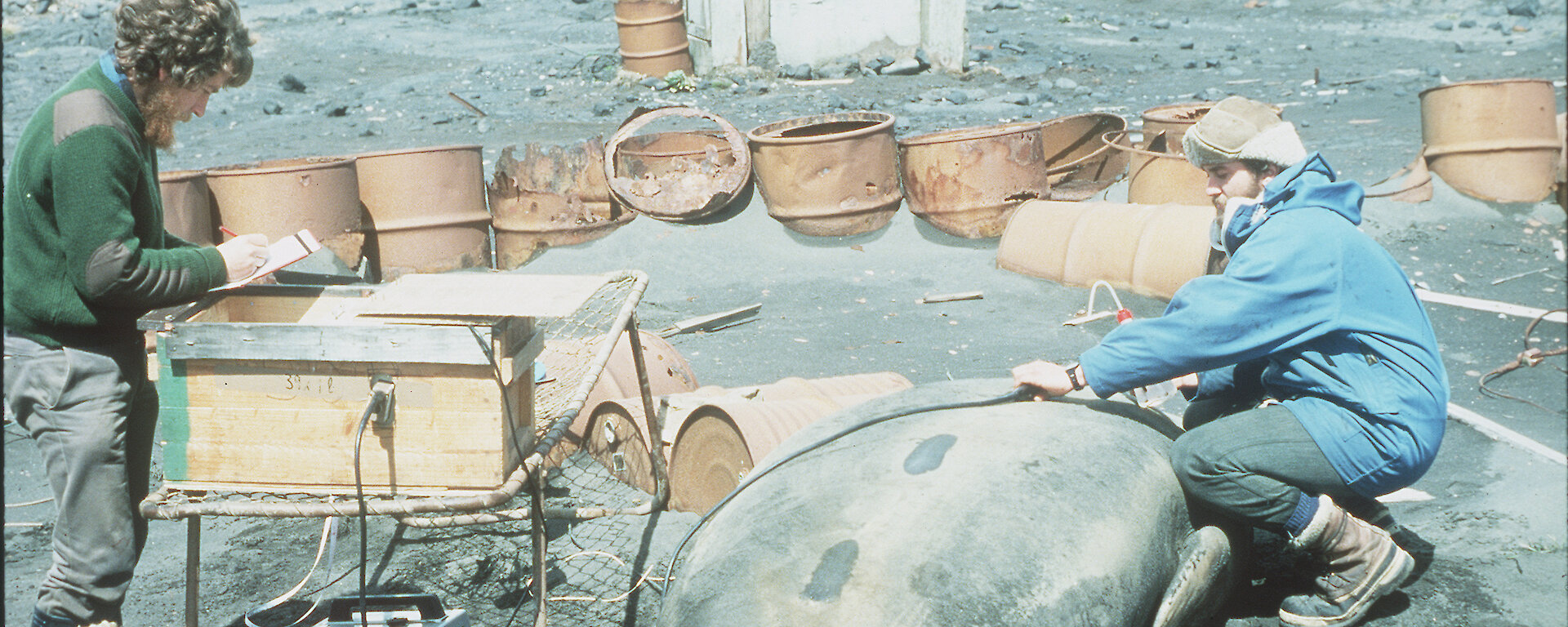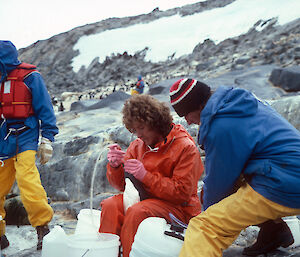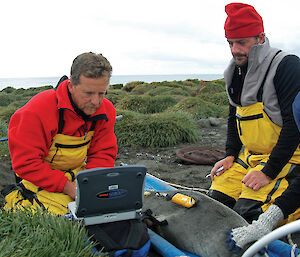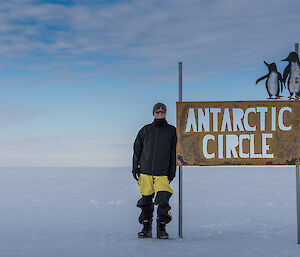The Director of the Australian Antarctic Division (AAD), Dr Nick Gales, ends his long career with the Program today.
Dr Gales first joined the AAD in the 1980s as a veterinary scientist studying elephant seals and penguins on Heard and MacDonald Islands and at Davis research station.
From his start as an over-wintering expeditioner, Dr Gales has worked in a scientific role at the Division since 2001, and as a member of the Executive since 2012. He became AAD Director in 2015.
“It is a unique journey. As the first Director to have wintered in Antarctica, it’s been enormously helpful in this role for me to genuinely understand the experience of expeditioners,” Dr Gales said.
“I feel deeply privileged to have been given the opportunity to lead this dynamic organisation, surrounded by incredibly competent people.”
“I am particularly proud of the role I’ve played as Chief Scientist and as Director in aligning our science more directly with policy and management and the priorities of the Antarctic Treaty.”
During Dr Gales’ tenure he has overseen the development of the Australian Antarctic Strategy and 20 Year Action Plan, which is modernising the Australian Antarctic Program at a larger scale of change than ever before.
“We’re getting entirely new and different capabilities. The new icebreaker RSV Nuyina is going to be an extraordinary marine research facility able to resupply and access our stations in a way that we’ve never done before.”
“We’re also looking at a new way of accessing Antarctica with aviation that goes beyond what we currently do with our ice runway, and developing our traverse capability to search for a million year old ice core,” he said.
Climate science continues to be a key research priority.
“Knowing how important Antarctica is for our climate, what the consequences of climate change are to Antarctica, and how that impacts humanity is a key part of understanding what’s coming in the future.”
During his time with the Division, Dr Gales has also been the Australian Commissioner to the International Whaling Commission (IWC).
He has led Australia’s efforts at the IWC to end ‘scientific’ whaling, and has been instrumental in developing non-lethal research methods.
Dr Gales’ last day is 29 November. A new Director is still to be announced.






